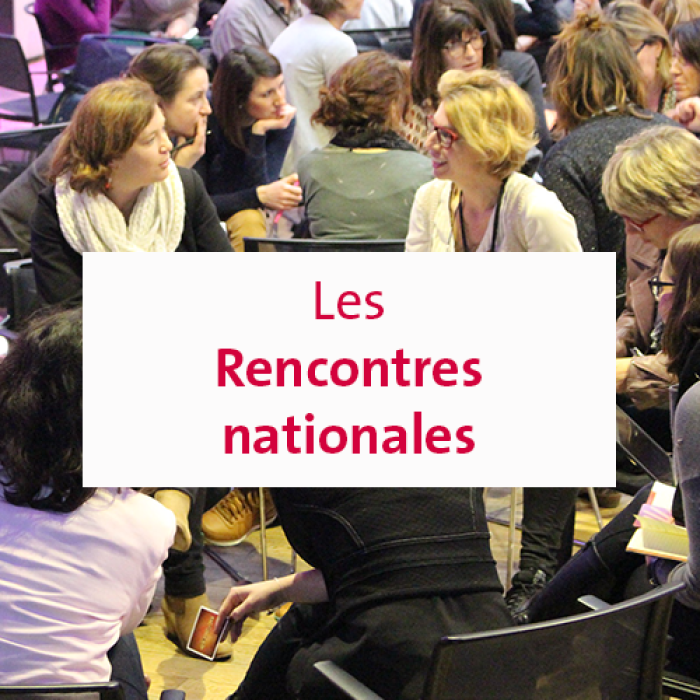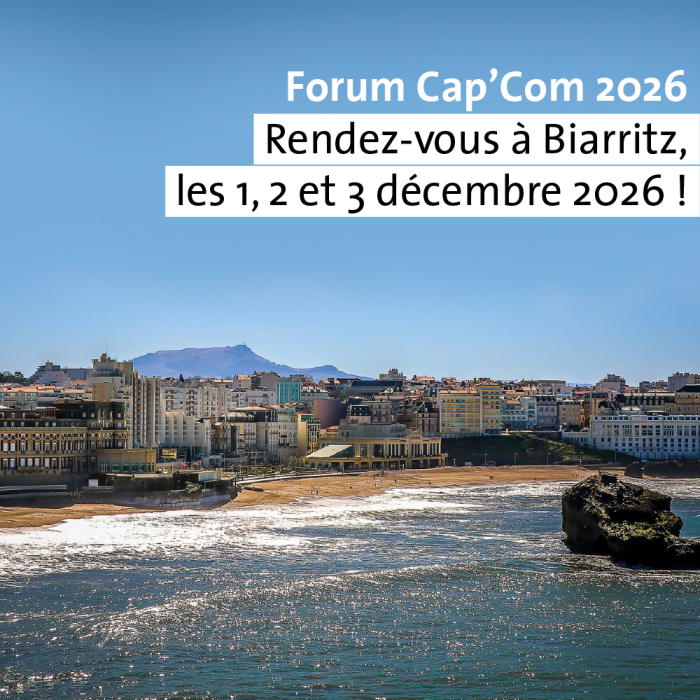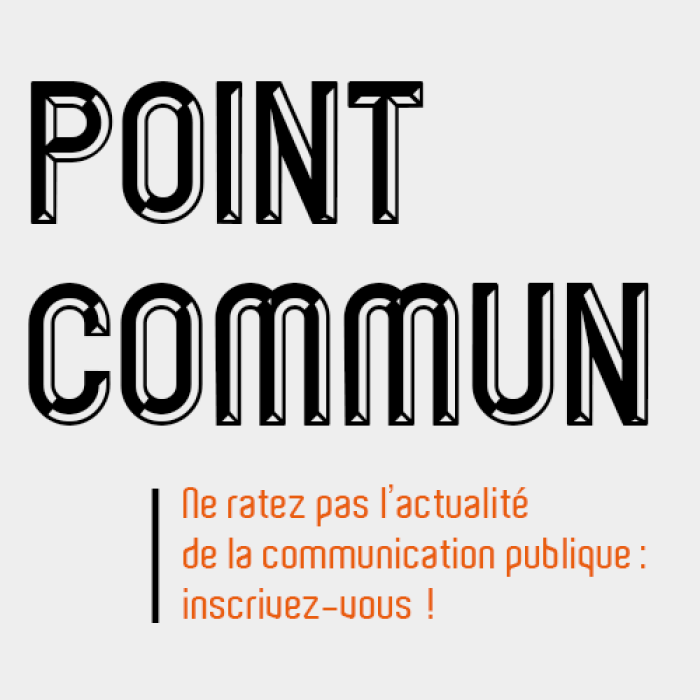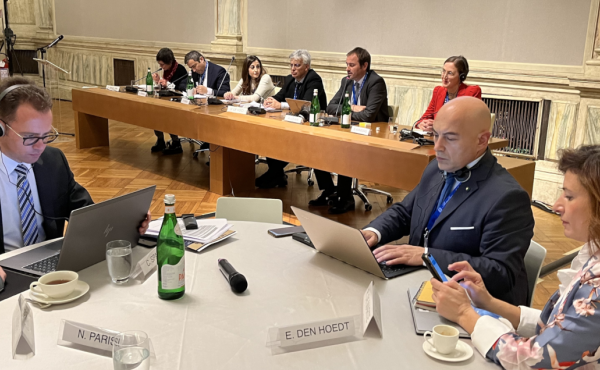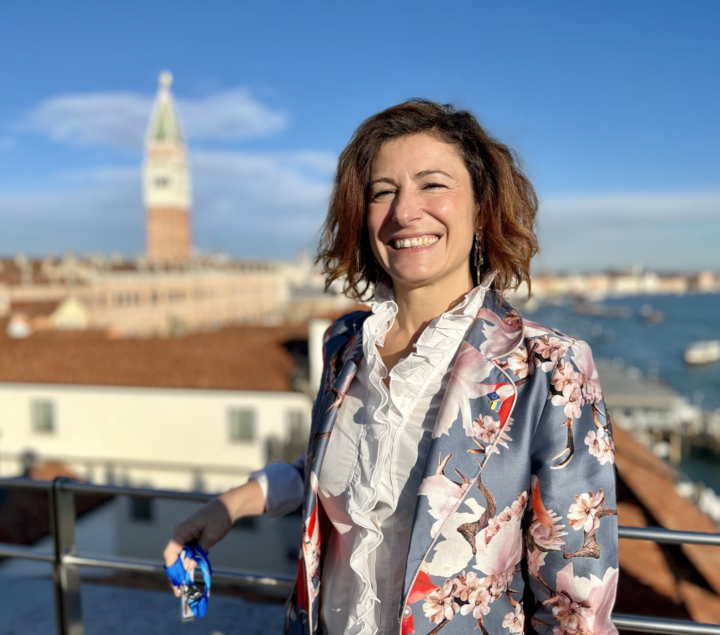
“We must defend the European democratic model”
Following a Public Communication Forum in Strasbourg that focused on Europe’s territorial challenges, Commonality interviewed Raffaella De Marte, Head of Media Services at the European Parliament’s Directorate-General for Communication, on the intersecting roles of communicators at these different levels and on the challenges for citizens that lie ahead.
Commonality: You spoke at the plenary session of the European Communicators’ Club about the challenges and priorities for communication in Europe. What are Europe’s expectations in these areas?
Raffaella De Marte: We are living at a time when there are multiple crises affecting the European continent. They have become more acute since Russia’s aggression against Ukraine, and they present us with a major challenge, not only politically but also in terms of communication. The challenge is to maintain European unity and ensure that we can provide a unified response to our citizens, who are becoming increasingly worried. We have figures showing that nine out of ten citizens are concerned about inflation, the cost of living and energy prices. Many of them see Europe as providing a certain level of response: for example, three out of four citizens approve of the EU’s support for Ukraine and the sanctions against Russia.
Communicating what unites us a Europeans is more important than ever right now.
Our role as communicators is not to add noise to the cacophony and fuel the divisive rhetoric, but instead to emphasise solidarity. In these troubled times, the last thing we want to do is portray Europe as a scapegoat. That would be a serious error, and irresponsible. Communicating what unites us a Europeans is more important than ever right now.
Commonality: What approaches could be used to strengthen this link and foster a relationship with citizens? What is your vision?
Raffaella De Marte: I think that there are very few people who question the European Union as it is today. The EU has demonstrated that unity is the only way out of times of crisis: through Brexit, Covid and the war in Ukraine. Even the most sceptical cannot deny the benefits of membership of the European Union (and three quarters of its citizens agree). But we have to explain to them what our European model is, what it looks like, what choices it offers! We need to educate people about the issues that Europe can lead on, in one way or another.
We hear, for example, that our democratic model could be too complex in times of crisis. This is a fairly common view that draws on preconceived ideas and assumptions to undermine the European project and the reality of how the Union works. But this is not true. On the contrary, it is the quality of the democratic way in which we operate, our plurality, our diversity, which gives Europe its strength and its relevance. We must defend the quality of our democratic model and demonstrate that, when necessary, it helps us make decisions quickly. This in no way means that we should not be looking at how we can reform. For example, the European Parliament is proposing a revision of the European treaties that will make our European democracy more agile and transparent.
Our democratic model is based on the participation, support and commitment of European citizens. We are therefore involved, and as communicators, we have the power to act and even a duty to explain to citizens and engage them. I see this as a major challenge for the next European elections.
Our role is to help communicators and local institutions build bridges between Europe and its territories.
Commonality: What role could public communication play in the territories in relation to these issues?
Raffaella De Marte: CAs an institution, we have a pressing need to work in partnership with the territories. Because communicating about Europe from Brussels is simply not enough. It does not adequately penetrate public opinion, which remains deeply national. We are not in a position to make the news ourselves, except at key moments. So we have to be part of national and local debates. Our role in this context is to help communicators and local institutions build bridges between Europe and its territories and use optical tools to get a clear picture of both decisions at the European level and their local impact.
I coordinate 52 press officers across the EU member countries, and their role is to bring European issues into the national public debate. Of course, we cannot do this alone. We cannot deliver a communication to every citizen in the whole of the EU, so we need to involve intermediaries in each country, in the regions and even in the different socio-professional categories. We have the advantage of being able to call on the voices and faces of elected MEPs to help us in this task. This is where we can develop synergies and cross-linkages with communicators in the territories.
The European Parliament also turns to influencers for its press relations efforts
How have you integrated these new players in the media space?
Since the last European elections, we have been breaking down the artificial boundary between traditional media and content creators: they have access to the European Parliament and are regularly invited by our departments to cover the latest European Parliament news.
We have also undertaken projects with several of them through our information offices. For example, in France, we worked with Jean Massiet, Gaspard G and HugoDécrypte to report on the State of the Union debate and other issues.
How do you speak to them? And what are the results?
We speak to them as we would speak to any valued partner. In fact, one of them recently told us he wished his own country’s institutions could come to them so easily! We give them access to our online resources, our studios and our audiovisual facilities, and organise ad hoc visits for them. We involve them in communication activities both in the countries and in Brussels and Strasbourg. For example, in September a group of influencers from all over Europe met with our President Roberta Metsola, the President of the Commission [Ursula von der Leyen] and several MEPs in Strasbourg. The next opportunity will be the Sakharov Prize in December. We have one important red line: we do not pay for content creation. That would undermine the institution’s voice.
By the way, the so-called “mainstream media” are also looking for their audience and their voice on social media channels, especially those aimed squarely at young people such as TikTok or Instagram. We want their work to cover European issues too. This will be one of the main focuses of our communication strategy for the 2024 European elections.

